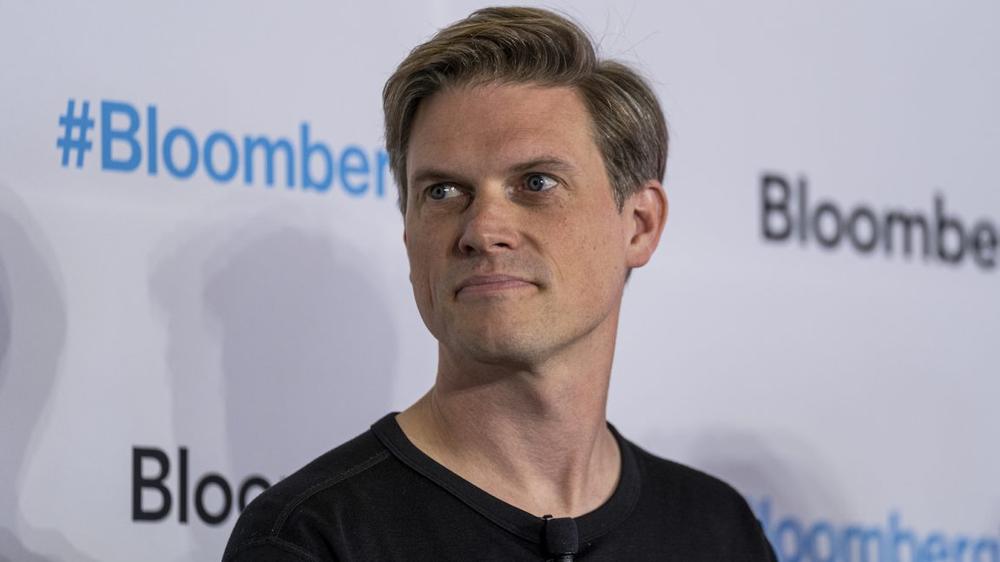There are plenty of rivalries in the US launch industry. People who build big and brawny machines tend to have egos to match. And if you chat up the senior executives of these rocket companies off-line, they are often more than happy to say derogatory things about their competitors.
But rarely are such sentiments expressed in public, without filter.
Chris Kemp, the chief executive officer of Astra, apparently didn't get the memo about playing nice. Kemp made some spicy remarks at the Berkeley Space Symposium 2025 earlier this month, billed as the largest undergraduate aerospace event at the university (see video of the talk). He provided an overview of Astra's successes and failures, and generally sought to make a good impression on prospective interns at the company, and future employees. The university is only a few miles away from the company's Bay Area headquarters.
During the speech, however, Kemp periodically deviated from building up Astra to hurling insults at several of his competitors in the launch industry. To be fair to Kemp, some of his criticisms are not without a kernel of truth. But they are uncharacteristically rough all the same, especially given Astra's uneven-at-best launch record and financial solvency to date.
Of Astra's seven operational rocket launches between September 2020 and June 2022, five ended in failure before the company's "Rocket 3" was retired. As these failures mounted, Astra's valuation plummeted from $2.6 billion to $25 million, and to stave off bankruptcy Kemp had to take the company private in 2023 at 50 cents a share. Since then a revamped Astra has been working to develop Rocket 4, and as Ars reported last year it has the potential to become a nice comeback story for the industry.
But Kemp's remarks about his competitors are unlikely to generate any good will in the launch industry and may blunt support for Astra's rejuvenation.
Firefly
One of Astra's enduring mysteries over the last half-decade concerned the engine that the company would use to power its larger Rocket 4 vehicle. Everyone in the industry basically understood that Astra had entered into an agreement to purchase competitor Firefly's Reaver engines, used by the Alpha rocket. However, Kemp and Astra never acknowledged this publicly.
Well, during his talk at Berkeley, Kemp did acknowledge this—and then some.
"There is a company called Firefly. They went public," Kemp said, sniggering. "We bought the engine from them, and it was garbage. We literally could not get the same engine twice from them. And none of them matched the CAD. And if you're in engineering you know that just doesn't work. So we basically had to start from scratch with this engine."
Neither company has ever really discussed the deal, but Ars understands that Firefly essentially sold the design of the Reaver engine to Astra, the rights to produce them, and some development engines for illustrative purposes.
In a response to Kemp's comments, a Firefly spokesperson told Ars, "Reaver engines built by Firefly have powered our Alpha launch vehicle to orbit multiple times and have performed flawlessly. In addition, our patented tap-off engine technology used across our family of engines has been hot fired more than a thousand times and counting. Firefly has full confidence in our engineering and the design of our flight-proven Alpha systems."
Blue Origin
Early in his talk Kemp references different approaches to innovation, comparing the fail-fast-and-learn method of iterative design with more traditional approaches to rocket design.
"I call it the Blue Origin and NASA approach, where you spend tens of billions of dollars, and in 20 or 30 years you build a rocket and it works the first time," Kemp said. "This is super important if what you're trying to optimize is, it works the first time. And for a program run by a nation-state or a billionaire that doesn't want to have a rocket blow up, this is prudent. But it does take decades and cost tens of billions of dollars for you to do the analysis and testing."
Jeff Bezos, the founder of Blue Origin, has certainly taken a methodical approach to developing rockets. However his suborbital New Shepard vehicle has flown 35 times, all but one a success, and has a nearly flawless landing record. The company's massive New Glenn rocket did take about a decade to develop but did not require "tens of billions" of dollars.
SpaceX
Kemp generally praises SpaceX for leading the way with iterative design and founder Elon Musk's willingness to fail publicly in order to move fast. However, in seeking to appeal to interns, he suggested that Astra offered a better working environment than SpaceX's Starbase factory in South Texas.
"It's more fun than SpaceX, because we're not on the border of Mexico where they'll chop your head off if you accidentally take a left turn," he said. "And you don't have to live in a trailer. And we don't make you work six and a half days a week, 12 hours a day. It's appreciated if you do, but not required."
For the record, no SpaceX interns have been beheaded. And honestly, Chris, that is just a really crass thing to say.
Rocket Lab
Kemp's longest and oldest rival in the launch industry is Rocket Lab and its founder, Peter Beck. This was especially apparent in a recent documentary that covered the rise of both Astra and Rocket Lab, called Wild Wild West. Kemp did not take any direct shots at Beck during his Berkeley speech.
However, in the late 2010s both Astra and Rocket Lab were racing to develop a small-lift rocket capable of lifting dozens to a few hundred kilograms to orbit, Rocket 3 and Electron. In hindsight, Kemp said, these rockets were not large enough to serve the market for satellites. There just were not enough CubeSats to go around.
"That little rocket is too small," Kemp said in Berkeley about Rocket 3. "And so is Electron."
Electron may be small, but it has launched more than 70 times. It could generate as much as $200 million in revenue for Rocket Lab this year. And it has provided an excellent test bed for Rocket Lab as it seeks to build the much larger Neutron vehicle, with a reusable first stage.
Overall Kemp's talk is insightful, offering thoughtful commentary on Astra's history and vision for the future. The company is a startup again, now focusing on building a mobile, tactical rocket that could serve national defense interests. Instead of focusing on reuse, the company wants to build a lot of rockets cheaply. It has built a large factory in California to accomplish this.
Also, after nine years in the launch industry Kemp seems to have finally learned an important lesson about rockets: reliability matters.
"Rocket 3 was the cowboy rocket," he said, noting the company has worked hard to improve its practices and manufacturing to build vehicles that won't fail anymore. "The big idea was, you can't get to scale without reliability."

 Databricks will bake OpenAI models into its products in $100M bet to spur enterprise adoption
Databricks will bake OpenAI models into its products in $100M bet to spur enterprise adoption